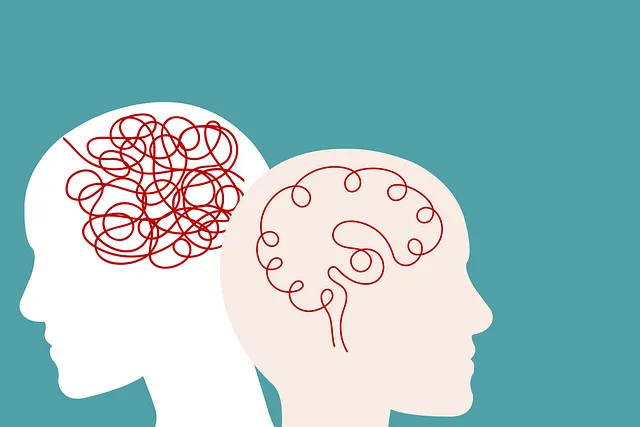The Lone Tree Kaiser Permanente mental health center leverages the Resourceful Living Model (RFM) and Resilience Building Exercises (RBF) for evidence-based resilience enhancement, as evidenced by positive client reviews. Through self-awareness exercises, communication strategies, group discussions, and stress management workshops, the center equips individuals with tools to manage daily stressors, navigate challenges, and adapt to change, leading to improved mental health outcomes and community well-being. Integrated RFM practices improve patient care and staff well-being, fostering a supportive environment that strengthens interpersonal connections and empowers individuals from diverse backgrounds.
“Resilience is a powerful tool in navigating life’s challenges, and the RFM (Resilience, Flexibility, and Mastery) model offers a structured approach to building this strength. This article explores how the Lone Tree Kaiser Permanente Mental Health Center has successfully integrated RFM exercises, providing a unique perspective on mental well-being. We’ll delve into the key components of effective resilience training, its benefits for both individuals and communities, and offer practical steps for implementation, inspired by the innovative practices at Lone Tree Kaiser Permanente.”
- Understanding RFM and its Role in Resilience Building
- The Lone Tree Kaiser Permanente Mental Health Center Approach
- Key Components of Effective Resilience Exercises
- Benefits for Individuals and the Community
- Implementing RFM: Practical Steps and Considerations
Understanding RFM and its Role in Resilience Building

At the Lone Tree Kaiser Permanente mental health center, reviews highlight the growing importance of resilience-focused programs. Among these, RFM (Resourceful Living Model) stands out as a powerful framework for enhancing individuals’ ability to cope with life’s challenges. This evidence-based model aims to foster self-awareness exercises and communication strategies that promote healthy stress management—essential components in building mental fortitude.
By integrating RFM into therapeutic practices, the center empowers clients to navigate stressful situations more effectively. The implementation of specific resilience-building exercises helps individuals develop a sense of control and adaptivity, crucial for maintaining psychological well-being. These exercises not only teach practical coping mechanisms but also encourage a positive mindset, enabling folks to embrace change and bounce back from setbacks with greater ease.
The Lone Tree Kaiser Permanente Mental Health Center Approach

The Lone Tree Kaiser Permanente Mental Health Center has pioneered an innovative approach to resilience building through unique exercises designed to enhance self-awareness and empathy among its patients. This center goes beyond traditional therapy by incorporating various techniques tailored to foster emotional well-being. One of their notable strategies is facilitating group discussions that encourage open conversations about mental health challenges, breaking down the stigma associated with seeking help.
By implementing Self-Awareness Exercises and Empathy Building Strategies, the center aims to empower individuals with effective Stress Management Workshops. These workshops are organized to provide practical tools for managing daily stressors, promoting a sense of calm, and building resilience. Lone Tree Kaiser Permanente Mental Health Center reviews consistently highlight their holistic approach, which has led to improved patient outcomes and a more supportive community for mental health awareness.
Key Components of Effective Resilience Exercises

Building resilience through structured exercises is a multifaceted process designed to equip individuals with the tools to navigate life’s challenges. At the Lone Tree Kaiser Permanente mental health center, reviewed favorably by many for its holistic approach, several key components contribute to the effectiveness of these exercises. Firstly, Mood Management techniques form the backbone, teaching participants to recognize and regulate their emotional states, a vital skill to foster resilience in the face of adversity.
Cultural sensitivity in mental healthcare practice is also paramount. Incorporating diverse perspectives and tailoring exercises to respect individual cultural backgrounds ensures inclusivity and enhances engagement. This personalized approach not only respects the unique experiences of each participant but also strengthens the potential for positive outcomes. Additionally, integrating these exercises into a broader Mental Wellness Podcast Series Production can provide ongoing support, allowing individuals to revisit techniques, share experiences, and build a sense of community around mental wellness.
Benefits for Individuals and the Community

Implementing Resilience Building Exercises (RBF) offers a multitude of benefits, both for individuals and the broader community. For people seeking support at Lone Tree Kaiser Permanente mental health center reviews often highlight improvements in their ability to cope with stress, anxiety, or trauma. These exercises empower individuals with social skills training, enabling them to navigate challenging situations more effectively. By fostering resilience, people gain a sense of control over their emotional well-being, leading to improved mental health outcomes.
The community at large also benefits from RBF initiatives. Enhanced resilience contributes to a more robust and cohesive society. Reduced levels of stress and anxiety translate to higher productivity and better overall well-being for citizens. Social Skills Training, when incorporated into community programs, promotes understanding and empathy, leading to stronger interpersonal connections. This, in turn, fosters a supportive environment where individuals can thrive, mirroring the positive changes often observed at facilities like Lone Tree Kaiser Permanente.
Implementing RFM: Practical Steps and Considerations

Implementing RFM (Resilience, Flexibility, and Mindfulness) practices at the Lone Tree Kaiser Permanente mental health center can significantly enhance patient care and staff well-being. Here are practical steps to integrate RFM into your routine:
1. Risk Management Planning for Mental Health Professionals: Begin by assessing potential risks within your practice setting. Identify stressors, challenges, and triggers specific to mental health work. Develop a comprehensive risk management plan that incorporates RFM strategies. This may include regular debriefing sessions, self-care protocols, and access to peer support networks.
2. Mental Wellness Journaling Exercise Guidance: Encourage patients to maintain mental wellness journals where they can reflect on their experiences, emotions, and thoughts. This self-awareness exercise promotes processing complex feelings and identifying coping mechanisms. Additionally, provide guidance for staff on conducting journaling workshops or offering personalized coaching sessions to support both professional and personal growth.
3. Self-Awareness Exercises: Foster a culture of self-awareness within your center by incorporating daily practices such as mindful breathing exercises, body scans, or brief meditation sessions. These exercises help professionals manage stress, improve focus, and enhance overall resilience. Regularly review and update these practices based on feedback from staff and patients, ensuring their effectiveness in supporting mental health and well-being.
Resilience is a powerful tool in fostering mental well-being, and the implementation of RFM through structured exercises has proven effective. As evidenced by the success of the Lone Tree Kaiser Permanente Mental Health Center’s approach, these practices can significantly benefit individuals and communities alike. By understanding RFM’s role and following practical steps for implementation, professionals can create a supportive environment that enhances resilience. The benefits, including improved coping mechanisms and community strength, make this an essential strategy to consider, as supported by various positive Lone Tree Kaiser Permanente mental health center reviews.






